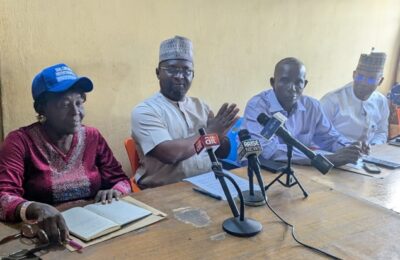On this side of eternity, what breaks nations is not always a military invasion or economic recession—but the unseen war between public trust and private righteousness. You see men in robes of honour, but behind the curtains, they wear cloaks of compromise. They chant public oaths with trembling lips, yet their hearts are chambers of deceit. Nigeria is no stranger to this contradiction. We celebrate men for their charisma in public while they rot quietly in the prisons of private immorality. Only few remains
The wound of our nation is not lack of laws or policies. It is the yawning gap between who we pretend to be before cameras and who we truly are when no one is watching. Public trust is a sacred covenant. It is the people’s gift to leaders, sealed with hope, expectation, and the cry for justice. Private righteousness, on the other hand, is heaven’s mirror in the dark—showing whether a man’s heart is aligned with his hands. When these two paths diverge, a nation enters moral bankruptcy, no matter how rich it is in oil or minerals.
The prophet Isaiah thundered, “Your rulers are rebels, companions of thieves; they all love bribes and chase after gifts” (Isaiah 1:23). Does this not sound like a front-page headline in our time? The contradiction is deadly: we elect men with public promises, but their private altars are defiled. What then do we expect when private altars control public altitudes? No revival can come until righteousness is restored—not in the streets first, but in the secret places.
Let’s return to the wisdom of Bishop David Oyedepo who once said, “You cannot be publicly right if you are privately wrong.” That’s a heavy verdict. It reminds us that character is the foundation, not a decoration. Nigeria, and indeed Africa, has many leaders with CVs full of achievements but hearts empty of convictions. The public sings their praises while their families whisper their regrets. The media defends them, but Heaven marks them with a red flag .
Even the Holy Scriptures groan with this concern. Jesus said in Matthew 23:27, “Woe to you, teachers of the law and Pharisees, you hypocrites! You are like whitewashed tombs… on the outside you appear to people as righteous but on the inside you are full of hypocrisy and wickedness.” Tell me, how different are our politicians today? Do they not smile at the people in public and strike deals with darkness in private?
And now the apostolic voice of Paul joins the lamentation. In Titus 1:7, he declares, “For a bishop must be blameless, as a steward of God; not self-willed, not quick-tempered, not given to wine, not violent, not greedy for money.” If this standard was applied at the gates of power, how many would still be standing? A leader is a steward—not of status, but of souls. Not of eulogies, but of accountability. But many have become public kings and private captives—swallowed by self-will and strangled by secrets.
Prophet TB Joshua once warned, “Your life is not measured by your public embraces but by your secret obedience.” That is the stone many have rejected, and it has become the cornerstone of our decay. We need leaders whose private lives reveberates what they preach on podiums; fathers who pray in secret, not just post Bible verses online; civil servants who do not bribe angels to get promotions.
We must start teaching our children that integrity is not old-fashioned—it is the new rebellion in a world where corruption is trendy. Private righteousness is the vaccine for public dysfunction. It is what turns noise into impact, and ambition into legacy. We cannot continue to have a Nigeria where men stand upright in public but fall flat before their shadows at home. No wonder the late Apostle Ayo Babalola said, “The strength of revival is not in crusades, but in the daily death of self behind closed doors.”
So, I ask: can a nation truly rise if her leaders are only righteous when it is convenient? Can churches birth change if their pastors are only holy when they are on the altar? Can we build a future if we keep investing in the public image but ignoring private truth?
In a generation where influence is louder than integrity, may we raise men who kneel privately before they lead publicly. May Nigeria not continue this dangerous romance with cosmetic righteousness while the soul of the nation weeps in hidden dishonour. Let there be a rebirth—not in policies alone—but in the hearts of men.
Let every citizen, whether in palace or prison, return to the sacred truth: the strength of a nation is not just in her public policies but in the private righteousness of her people.
– Inah Boniface Ocholi writes from Ayah – Igalamela/Odolu LGA, Kogi state.
08152094428 (SMS Only)




